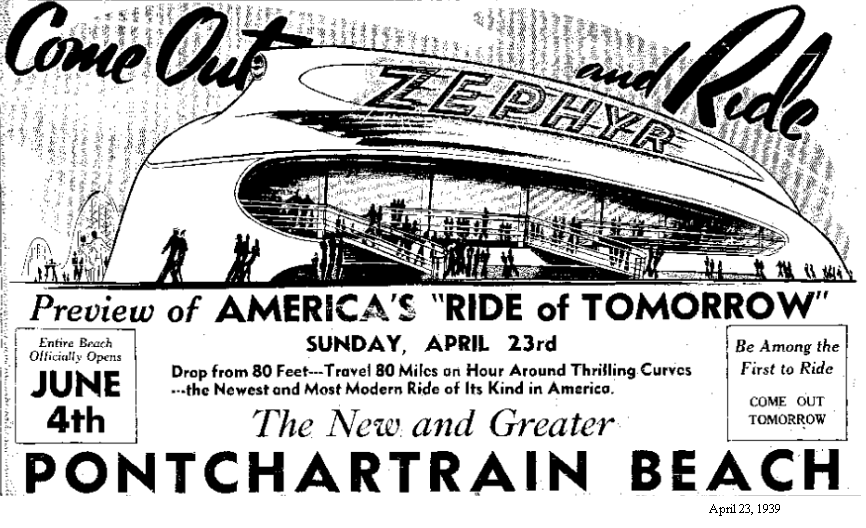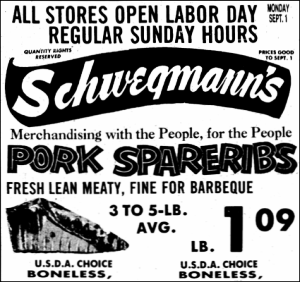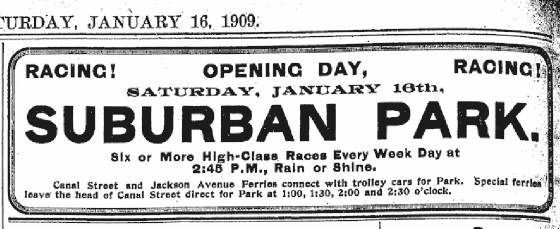|
Today in New Orleans History |
|
|
January 16


 Mayor C. Ray Nagin's "Chocolate City Speech" The "Chocolate City Speech" is the nickname that some have given to the Martin Luther King
Jr. Day speech by Mayor Ray Nagin on January 16, 2006, several months after Hurricane Katrina. Prior to Nagin's speech, some commentators were suggesting that the
city's demographics would change from majority African American to majority Caucasian. In an interview with Public Radio
International's Tavis Smiley (originally broadcast on January 13, 2006) Nagin used the phrase "chocolate city"
in reference to New Orleans' future demographics. It has been said that in African American culture,
the term chocolate city refers to a positive, harmonious image of a city with a predominantly African
American population and/or African American political leadership. The concept originated with radio DJs in Washington D.C.
in the early 1970s and was popularized by the band Parliament, who released the album Chocolate City in
1975. The term has been widely used, including by prominent scholar Cornel West in his 1993 bookRace Matters and
by comedian Chris Rock. Nagin
later attempted to explain his remarks by offering a more racially inclusive metaphor, saying "How do you make chocolate?
You take dark chocolate, you mix it with white milk and it becomes a delicious drink. That's the chocolate I'm talking about."
Nagin said that his remarks were meant to be a call for African Americans to once again return to New Orleans despite the
supposed belief that many of the people Uptown did not want them back. The Mayor apologized for the suggestion that
people Uptown (a mixed neighborhood) were racist, noting the importance of that section of town in the city's recovery. He
particularly stated regret for the statements about God. "I don't know what happened there," he said. "I don't
know how that got jumbled up. That whole God thing, I don't know how that got mixed up in there." Nagin concluded "I
need to be more aware and sensitive of what I'm saying... Anyone I've offended, I hope you forgive me." (Wiki)  

To receive an update for each day in New Orleans
history, join our facebook page
- Today in New Orleans History
1975: Paul McCartney and Wings arrive in New Orleans to begin sessions on their Venus and Mars album at Allen Toussaint's Sea Saint studios. They would stay through Mardi Gras. Born in New Orleans on October 16, 1926, Judge James August Comiskey served in the United States Army
during World War II, from 1944 to 1946. He received a B.A. from Loyola University New Orleans in 1949 and a J.D. from Loyola
University New Orleans School of Law in 1951. He was in private practice in New Orleans from 1951 to 1967. On
January 16, 1967, Comiskey was nominated by President Lyndon B. Johnson to a new seat on the United States District
Court for the Eastern District of Louisianacreated by 80 Stat. 75. He was confirmed by the United States Senate on March
2, 1967, and received his commission on March 4, 1967. Comiskey served in that capacity until his resignation on June 15,
1975. He was thereafter in private practice in New Orleans until his death in that city on February 1, 2005.
The racing season opened at McDonoghville's (now Gretna) Suburban Park in Jefferson Parish on January
16, 1909. A reported 2000 people were in attendance, including the parish District Attorney L. H. Marrrero
Jr. and his father, the sheriff who sat at the judges stand before mingling with the crowd in the grandstand -- despite the
fact that gambling on horses was legislated as illegal by Louisiana lawmakers in 1908 under what was known as the "Locke
Law" (named for Honorable Leon Locke of Lake Charles). Archbishop Blenck was reported to have had "no
uneasiness" with the circumstances which were reported in the local newspapers as well as in the Los Angles Times and
others. |
|
|

To receive an update for each day in New Orleans history,
join our facebook page - Today in New
Orleans History.
Analytics |


